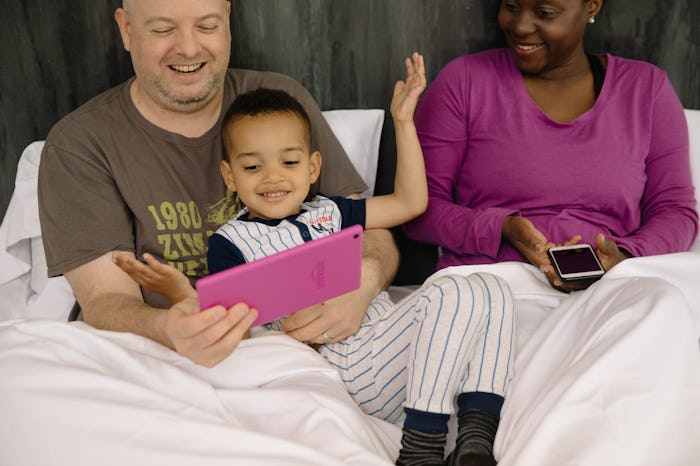If you’re a book lover, then you know there are few pleasures unique to holding a tangible book in your hands. The sound of a book spine cracking as you open it for the first time, the feeling of pages between your fingers — OK, please let me know I’m not alone on this. But these days everyone has new ways to read books, including e-readers and audio versions of your favorites. But what about electronic games and apps designed to help kids decipher the words on a page? Do apps help kids learn to read?
"Yes, there are many applications that have been designed to help engage children at a young age and foster early literacy skills that promote the reading process," says Tony Skauge, a former elementary school teacher who now works with school districts nationwide to implement online educational programs for Edmentum, Inc. "The best applications on the market do a great job of combining both an engaging and interactive interface alongside research-based, skill-building activities that focus on the five essential keys to reading success — phonemic awareness, phonics, vocabulary, reading comprehension, and fluency — to build strong readers."
Skauge, who spoke with Romper in an email interview, says when choosing a reading app, parents should look for a research-based application that has proven results in helping students both learn to read and become overall stronger readers. U.K.-based reading specialist Julianne Miller agrees, telling Romper that it’s also important to choose an app with different functions. For example, an app for an early reader that helps a child link a sound and a letter would be a "terrific choice," she says. An app that incorporates language development is also key.
"Vocabulary and reading are intertwined skills and having a great vocabulary can act as a protective factor if there is a family history of reading difficulties and/or dyslexia," says Miller. "We teach reading and spelling simultaneously because they support each other."
According to Scholastic, solid apps for teaching kids to read include Bookster, Tales2Go, and MeeGenius, which all include an interactive element, like the ability for a child to record himself while reading or upload drawings to correspond with stories.
One thing Skauge and Miller are both quick to emphasize is that reading apps are meant to be balanced with hands-on reading. This means giving children multiple ways to practice their literacy skills by using homework as time for them to show off their reading skills, and even asking them to identify road signs while driving in the car, according to PBS.
"Everyone knows that the pleasure of lying in bed next to your beloved adult reading to you is pure bliss," Miller says. "Apps need to give a child something that a parent can’t, and they can — and will — if we rethink what we mean by reading."
Sounds like the best of both worlds is where it’s at when it comes to teaching your little ones to read. Good news for this bookworm.
